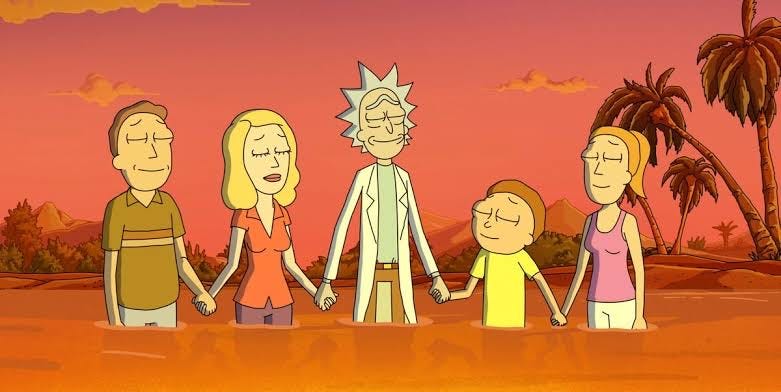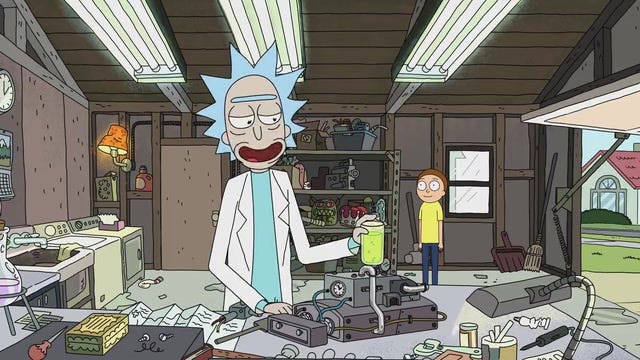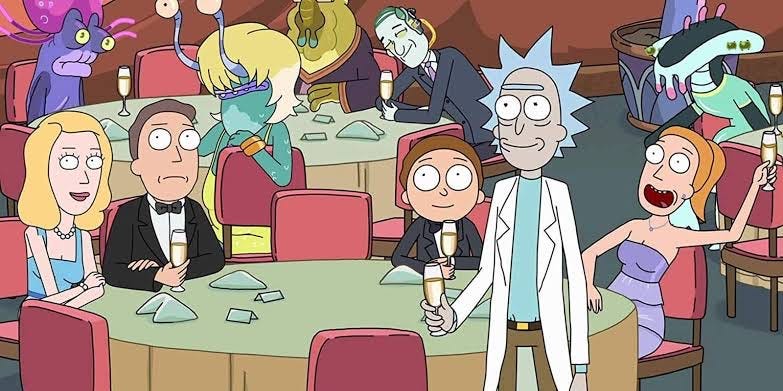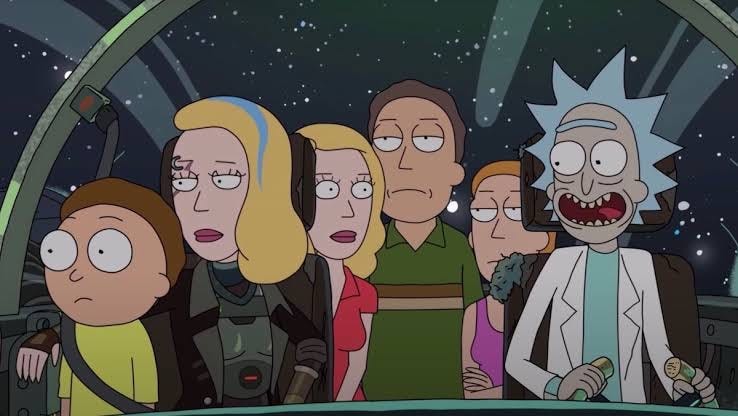Rick and Morty and continuity (FROM THE ARCHIVES)
How do you tell a story with no stakes?
Note: This article was written in December 2022., prior to the publicised abuse allegations concerning Justin Roiland.
Recently, I decided to start watching the hit show everyone was talking about before the pandemic, ‘Rick and Morty’. Call it a whim, call it half a decade of FOMO finally bubbling to the surface. Mostly likely it was the result of TikTok pushing it onto me. But regardless, over the course of two separate weekends, I watched the full 6 seasons from start to finish.
First things first, I want to emphasise how much I do not care about the fandom that surrounds the show. Neither the good nor the bad of that particular online culture is very useful in regard to my understanding. Yes, there’s definitely meta-textual references within the show, particularly in the second half of the current run, but the fandom is its own beast. Plus, the show hates them all.
No, what interests me in this show thus far is the writing. In particular, the way the show deals with continuity. Because it’s an incredibly tight story written in a way that reads as very loose and freeform. Every event has its own weight, but however much you give it is totally up to you. Until that audience agency is snatched back.
‘Rick and Morty’ is incredibly simple on premise. We follow Rick Sanchez and Morty Smith, a grandfather/grandson dynamic that is immediately and obviously abusive. From the pilot onwards, Rick is callously intelligent, and Morty is explicitly stupid and, more importantly, vulnerable. The entire family is. His grandfather does not feel guilt for placing him and his family in danger, knowing he has the ability to fix almost all problems with his seemingly inexhaustible science. When Morty breaks his leg, Rick retrieves technology that instantly fixes it. But his selfishness also leaves them needing to run from danger, and they’re only there in the first place because he wants something.
That may sound like a while lot of nonsense and overpowered gibberish, but we quickly see how limited that limitless pool of resources is. The power to do anything is not the ability to always do it right, and Rick hits his ceiling almost every episode. When a love/lust potion goes wrong for Morty, Rick is only able to resolve their story via running away via the more fatal ending for an alternate dimension version of the duo. This same tactic is used in Season Six – but includes the extended family.
And herein lies the tension of the show. It follows one version of a series of characters that we know and come to love. But that tension, of jumping between timelines and dimensions, makes the show emotionally difficult to parse. Alternate dimensions, alternate realities, robots and clones, they all offer avenues of narrative escape.
But the show, like Rick himself, cannot run forever from its own consequences. The writing explicitly rejects canonical truth again and again but returns to it when the time comes to begin, punctuate, or end arcs. The death of Rick’s wife Diane and his original daughter, Beth, is his driving motivation. Sometimes. Season Six ends with Rick pulling Morty into the narrative proper, after a season in which he removed himself from the smaller adventures in order to find the version of himself that killed his family. It’s the most explicitly canonical the show has ever allowed itself to be.
For now.
Because, again, the show keeps returning to and rejecting canon. Morty goes back to the original timeline, meets up with his original father, Jerry, who we last saw with his wife and daughter. But in Season Six, he’s alone, scared, and abandons the son who abandoned him. This is the same episode where we see Rick return to his dimension, and not only do we confirm his backstory, we confirm that he left pain in his wake. The original neighbourhood exists in a loop he designed to torture himself.
Beth, his daughter (or rather, the version we currently sit with) all but begs him to father her in every episode, but herself has expanded beyond that want. His decision to clone her so that she can essentially split her own desires comes back in the form of incestuous self-love. She rejects his manipulation and returns to Jerry. Rick’s obsession with control is one he knows is pathetic and repeatedly fails, but he cannot stop himself. He believes himself to be free, but repeatedly returns to the emotional core that the first few seasons have him explicitly reject.
But this dynamic comes at a cost, which has me return to the abuse. Only Jerry regularly calls him out for the way he treats the family. Jerry, who will turn himself into a bug instead of dealing with his wife’s infidelity. But at least he has the foresight, from the first episode, to see the games Rick is playing with the family he (or at least a version of him) left behind. The go-bots episode outlines how his obsessive nature, when not pulled into check by Morty, leaves him callous and cruel. The family trades dignity and safety for the convenience of having his genius to solve problems, and the emotional dependence he has built within them. Everyone gets hurt with him around.
Morty and Rick is a dynamic that is majorly beneficial to his grandfather, who ensures that whenever Morty establishes a transactional element, it is not honoured on his end. It might be stupid and adolescent, but Rick’s refusal to take Morty to “Boob World” highlights just how little he values his grandson’s wants. Morty demands fairer treatment, gets it agreed to, and never receives it. His grandfather would rather replace him with crows than take critique.
He’s a man who turned himself into a pickle to escape therapy.
The show wants to establish that this is, if not the best Rick, at least one that cares. His contemporaries create a society that mistreats their grandsons, and there is a version of himself that tortures them en masse to disguise himself from detection. This Rick, at least, loves his grandson enough to heal his broken leg.
A leg he helped him break.
You cannot know when episode to episode, moment to moment, this will all crash down. While on one hand, we’ve definitely reached a point where replacing the family again or engaging more clones would be redundant. Rick spent half of Season Six as a robot, and the audience’s only clue was that he was slightly more empathetic to his grandson. Not significantly, but enough that it initially read as character development.
The show circles around itself, extending the story again and again in order to explore this seemingly endless premise. Rick is never not overpowered, Morty is never not sitting between grandson and pet, and the canon expands and retracts at whim. The world is well built, but the narrative creeps at a snail’s pace while the plot distracts itself and runs forward on a treadmill.
And we wait to see who breaks their leg next, and if this time it won’t get fixed.





